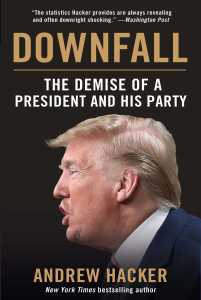We’re living through a historic moment. Following the lead of many others, I’ve decided to start keeping a COVID-19 diary. Don’t expect anything startling — just a few observations from someone stuck at home, lucky to be working and healthy.
This was the week that everything seemed to come apart. The death toll from COVID-19 passed 100,000. And yet, briefly, that terrible milestone has been overshadowed by the latest in a long series of reckonings over what it means to be Black in America.
The day began with Omar Jimenez, a Black Latino journalist for CNN, being arrested by white police officers in Minneapolis even as a white CNN reporter stood not far away, unmolested by cops. The journalists were there to cover the protests that have broken out over the killing of an African American man, George Floyd, at the hands of a white officer. That officer, Derek Chauvin, has been arrested and charged with third-degree murder and manslaughter. No word yet on the fate of the three officers who stood by and let it happen.
The day ended with televised images across the country, from Minneapolis to Atlanta, from New York to California, as thousands of people protested against racist violence against African Americans. Sadly, some of those protests turned violent. But as Martin Luther King Jr. said, “A riot is the language of the unheard.” This week the unheard were intent on being heard — not just on behalf of Floyd, but also many others, including Breonna Taylor, Ahmaud Arbery and, yes, even Christian Cooper, who was not physically injured but who was humiliated by a privileged white woman when he asked her to leash her dog.
And let’s not forget for a moment that President Trump is pouring gasoline on the fire by tweeting out such incendiary calls to violence that Twitter finally had to crack down on him, sparking a confrontation over the First Amendment.
I was struck last night by David Brooks’ demeanor on the PBS NewsHour. I’d never seen him as agitated and upset. I thought he might start crying — and who could blame him? And I was moved deeply by the African American scholar Eddie Glaude Jr. of Princeton University, who was interviewed earlier in the NewsHour by Amna Nawaz. I’ve embedded it above, and you should watch it all. Speaking of Floyd’s killing, Glaude closes with this:
He cried out for his mother. She’s been dead for two years. She’s been dead. He basically told someone to tell my kids that I love them, because I’m going to die. And that man, that moral monster kept his knee on his neck. I didn’t — I couldn’t process it. It broke me.
I’m currently reading John M. Barry’s “The Great Influenza,” his 2004 book about the deadly flu pandemic of 1918. You might think that wouldn’t be the most relaxing thing to curl up with in the midst of the current pandemic. But the 1918 flu eventually ended, which is a good reminder amid what seems like an endless tragedy.
Last week was the worst in our country’s history since 9/11. Before that, you’d have to go back to the war, assassinations and riots of 1968. Back then, our political leadership was not up to the task. Today, the president and his fellow Republicans are actively making things worse.
We have to hope that there will be better days ahead — and, to the extent that we can, work to make those better days happen.
Talk about this post on Facebook.







